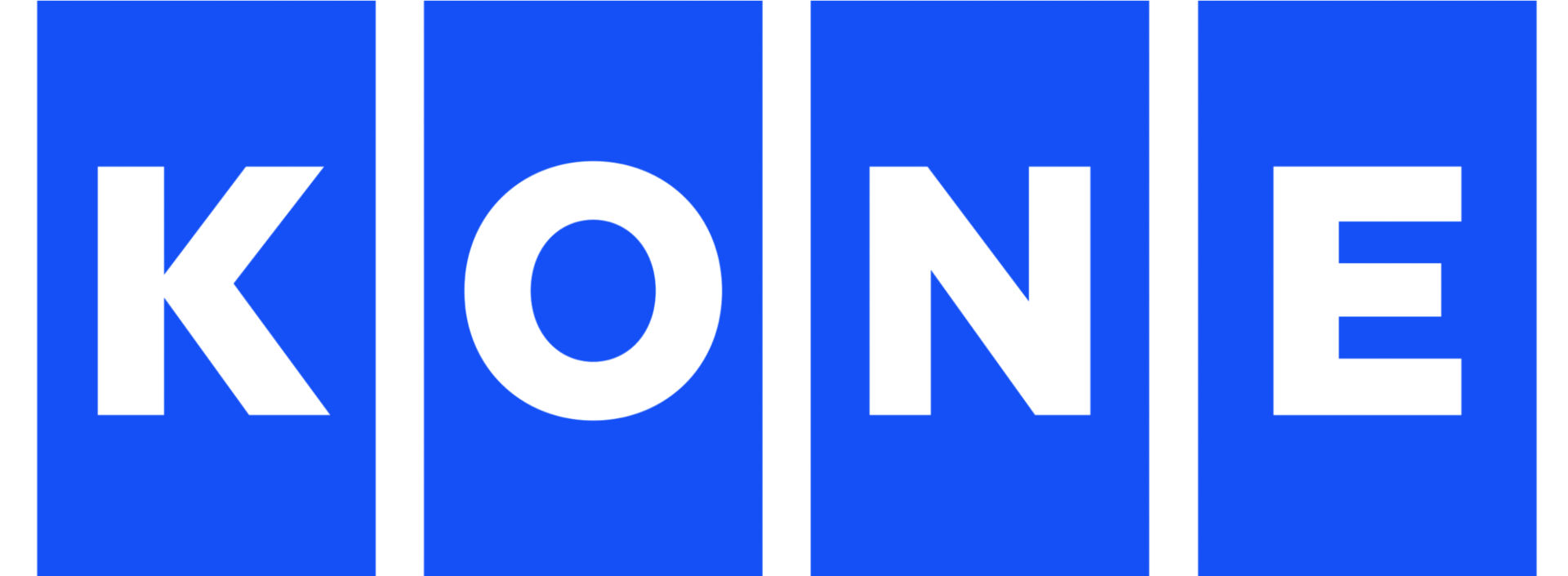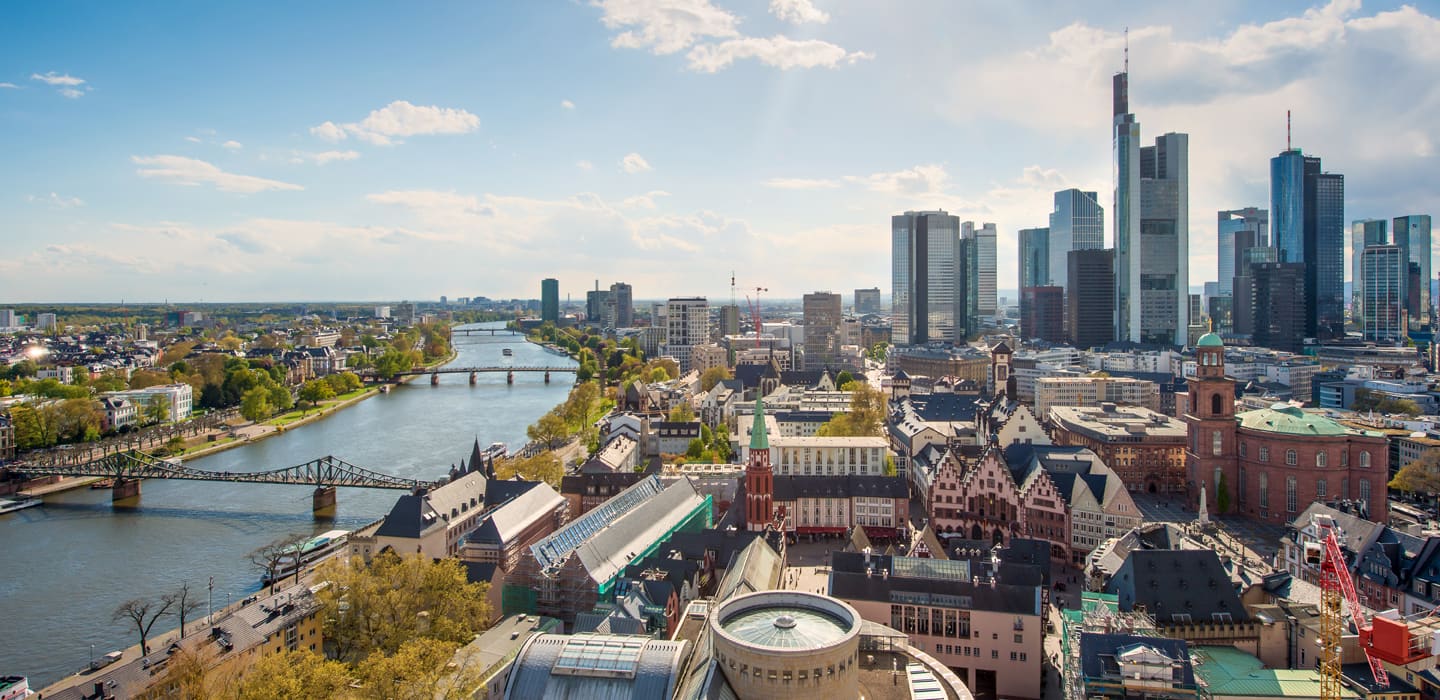Would you like to explore our corporate site or visit your local website?
Stay on Corporate site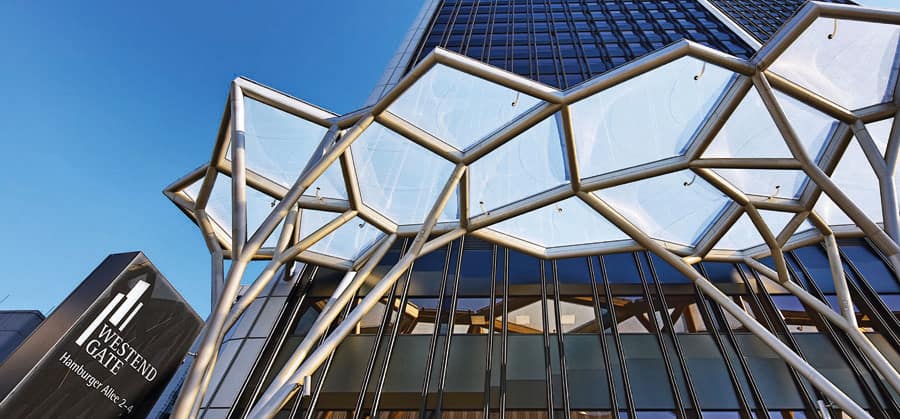
Text: Rachel Stern
At first glance, it might have seemed like Mission Impossible. The elevators of the Westend Gate building, which offers both hotel and office space in Frankfurt, were modernized between September 2015 and January 2017, a task that involved scheduling several hours of intensive work, on-site, without disturbing the many people staying and working within the complex, especially the Marriott Hotel, which has been the main tenant of the Westend Gate since 1989.
“We had a short time window to carry out drilling and rail fastening,” says KONE sales person Lothar Franke, pointing out that the construction required close and speedy cooperation with the management. Often meetings were held in the building’s courtyard in order to not disturb the hotel guests. The noise from the construction too was kept to minimal levels.
Through the successfully completed upgrades, the sleek and tech-savvy space not only gained features such as a service elevator and up-to-date elevator technology for increased comfort and speed, but also official European Union (EU) Green Building Certification.
Changing with the times
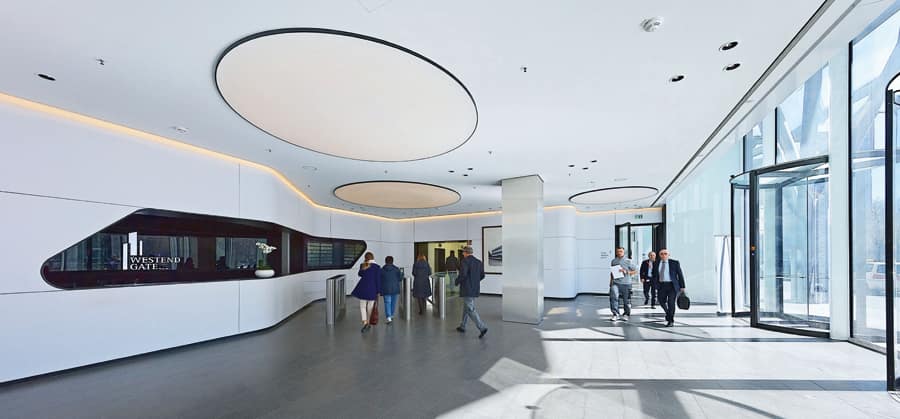
But why are many buildings in the EU being modernized? Primarily because the stock of buildings in the EU is relatively old, with 40 percent having been built before 1960. Simply tearing down old buildings and replacing them with new ones is not possible, according to Rob Williams, a senior consultant at Trinomics, an economics policy consultancy.
“There are too many buildings involved, it would be too resource intensive and it would lead to the destruction of too many buildings of architectural merit,” he says.
Keeping all this in mind, from an economic point of view it makes more sense to refurbish a building than to replace it – especially since most existing buildings are expected to last until 2050. The Westend Gate is one among thousands of buildings across the EU that is being modernized, turning them into contemporary, efficient structures.
So how did KONE’s team go about modernizing the equipment at the Westend Gate? To minimize time and save resources, we began by improving ease of access to the building. They refurbished the building doors and improved the secure entrance to the building. Our innovative Access Control systems were integrated with the building elevators to improve security and efficiency.
The elevator solutions were also designed to make people flow smooth and seamless. For instance, two elevators were dedicated to connect the 1st with the 5th up to the 11th floor, while four elevators were dedicated to connect the 1st with the 12th up to the 24th floor.
Anticipating and providing the best routes
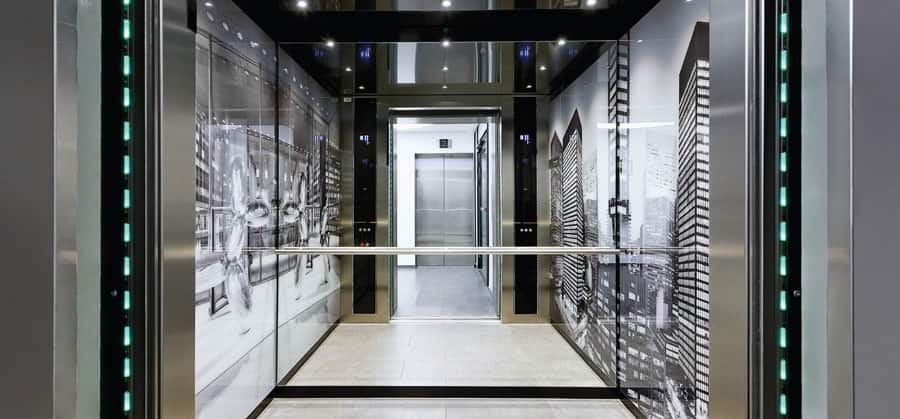
KONE’s Destination Control system was installed to analyze the number of waiting passengers and the desired destination, in order to provide the fastest and most efficient routes. For VIP service for special tenants, these elevators could also be made to travel to the basement parking areas, a unique service provided by us for the Westend Gate. In order to access the underground parking area, two elevators were extended two floors underground, an extremely difficult task which hasn’t been carried out often, but which the KONE team managed successfully.
Additionally, a fireman’s elevator in the hotel was modernized. For deliveries, a MonoSpace 700 lift was put in to move goods quickly and discreetly. For its installation, a 54-meter-high shaft was added to the façade – an extremely challenging task that we carried out successfully nonetheless.
KONE’s elevators were also equipped with advanced technology to conserve energy. While the old elevator drives, for example, had an estimated power consumption of 35 kw per hour, the new elevators clocked only 7.5 kw per hour – an impressive reduction by any account.
Irati Artola, sustainability advocate and a consultant at Trinomics, says that while technology for energy efficiency in buildings is already available, it is the uptake of this technology that is often an issue.
“This is related to a lack of awareness, knowledge and suitable implementation of these technologies as well as to the need for behavior change,’ she says.
The successful implementation of new solutions will help create more awareness and act as a model for modernization of more buildings across Europe. It’s time to catch the wave.
